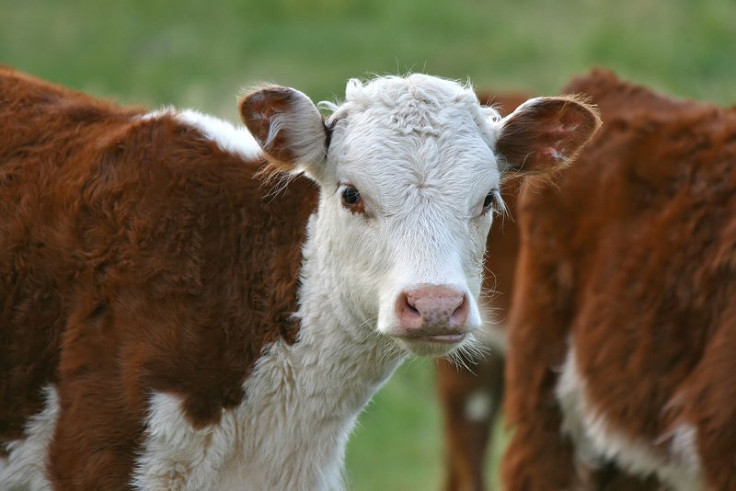Beef Industry Greenhouse Gas Emissions: Cows Produce Most Methane While Feeding Calves

Cows produce most methane while feeding their calves, researchers have found.
The beef industry has a carbon footprint ranging from 10.7 to 22.6 kg of carbon dioxide equivalent per kilogramme of hot carcass weight.
This is equivalent to almost ten litres of petrol per kilo of beef.
Identifying when cows produce most methane - which is one of the worst of the greenhouse gasses - means farmers have the opportunity to lower their impact on global warming.
Researchers at the Department of Animal Science at University of California, Davis, pinpointed the cow-calf stage of the animal's life as a major contributor to greenhouse gasses during beef production.
Published in the Journal of Animal Science, the scientists note that after a cow gives birth they care for the calf until it is between six and 10 months old (called the cow-calf stage).
During this time, they eat rough plants like hay and grasses. The bacteria that produce methane in the cow's gut thrive on these plants.
Study co-author Frank Mitloehner said: "If you look at everything that contributes to greenhouse gases through the beef supply chain, then it is the cow-calf that produces the greatest greenhouse gases.
Emmissions reduced by HGPs
"The more roughage is in the diet of the ruminant animal, the more methane is produced by the microbes in the gut of the ruminant, and methane comes out the front end."
When cows are not in this stage, they eat mostly corn and grains, which the methane-producing bacteria cannot utilise as well.
Over recent years, the beef industry has been making efforts to reduce its greenhouse gas emissions.
Chase Adams, director of communications for the National Cattlemen's Beef Association, said: "We are doing a lot to measure and mitigate our impact."
Mitloehner believes this research could help the industry recue its carbon footprint by using technologies such as hormone growth promoters - which help to increase the weight of the cows.
However, he warned that consumers are often uncomfortable with their use and opt for organic beef instead, which had reduced amounts of HGPs.
"The technologies many consumers are critical of are those that help us receive the greatest environmental gains," he said.
© Copyright IBTimes 2025. All rights reserved.






















